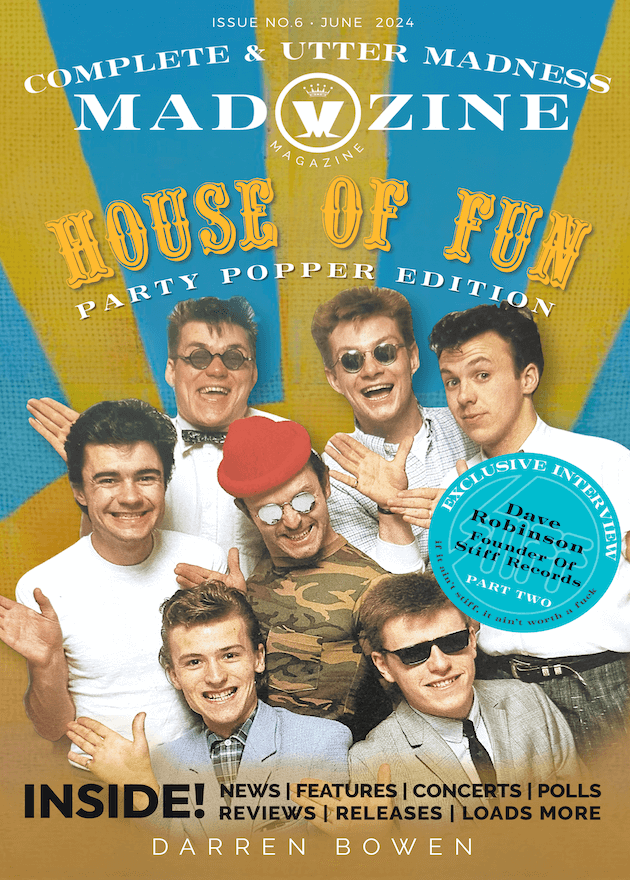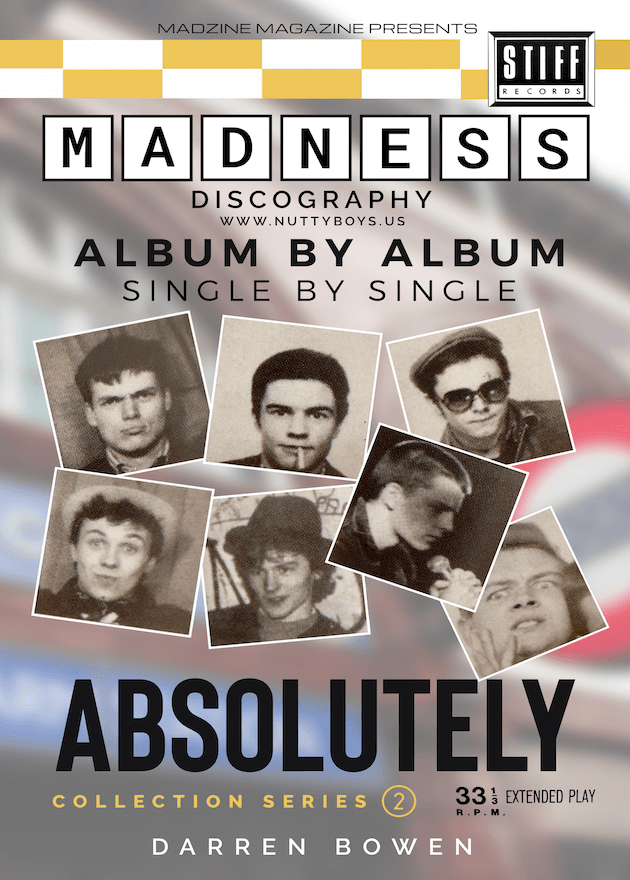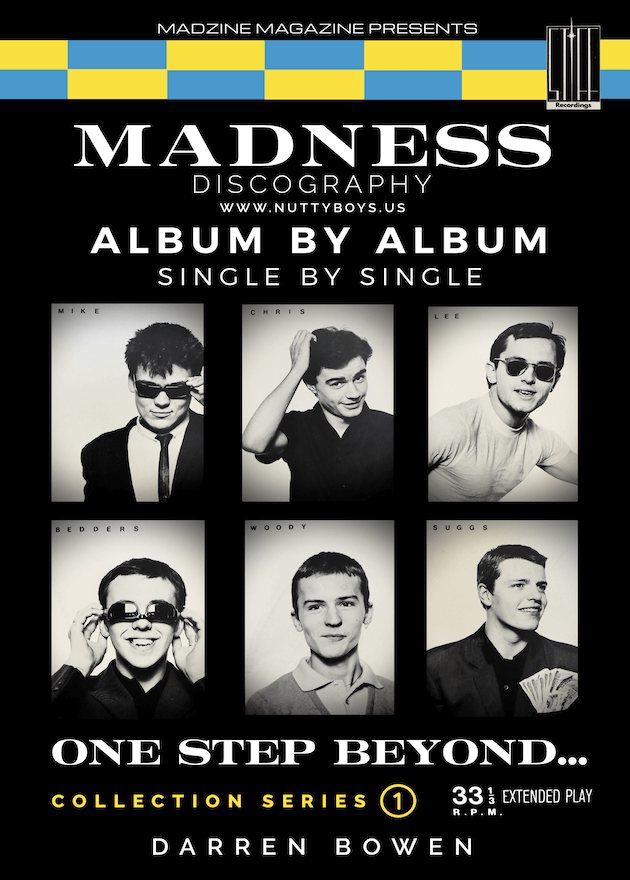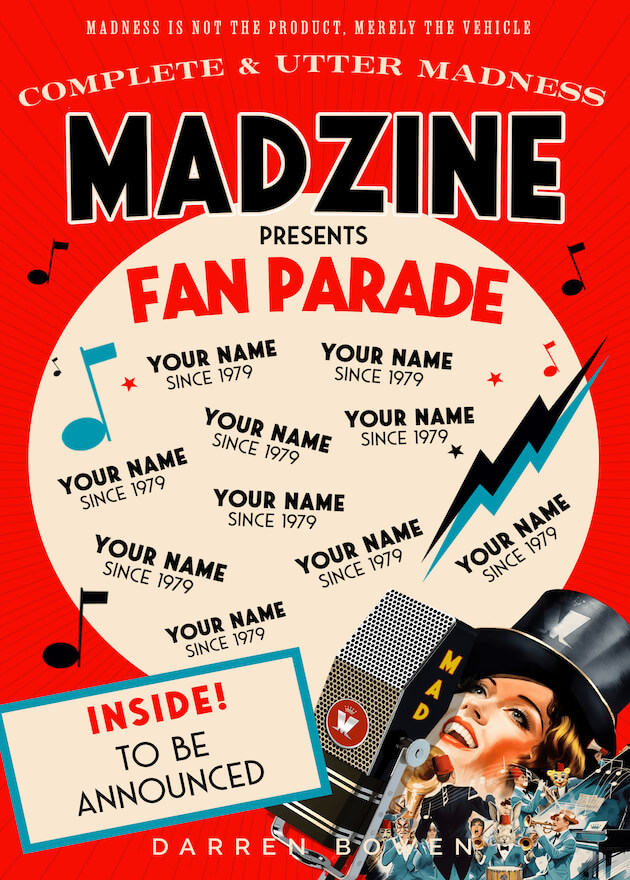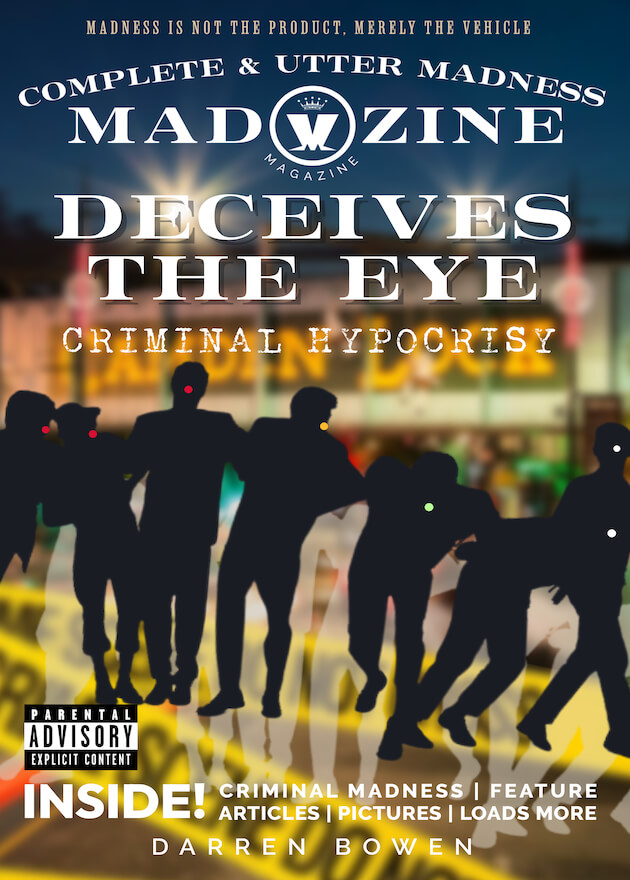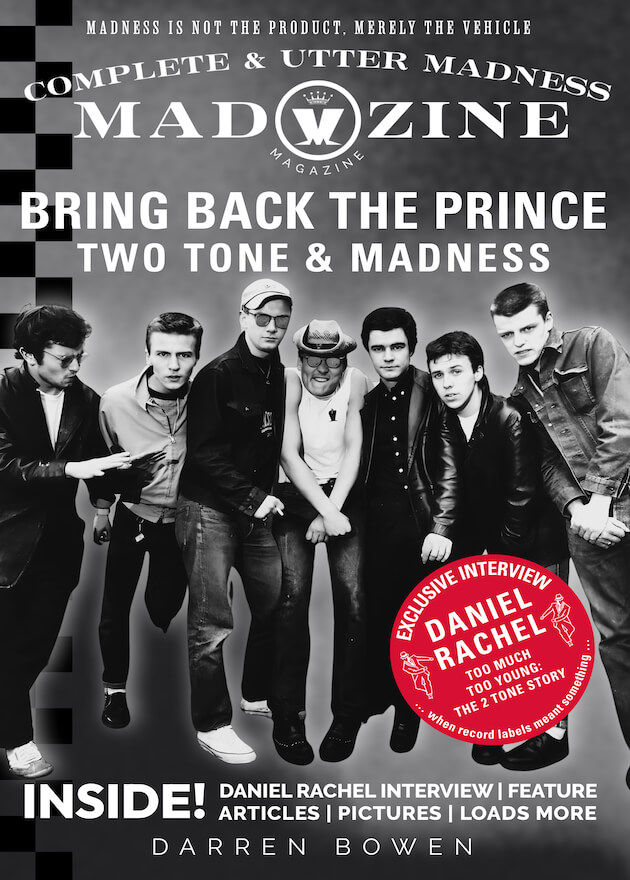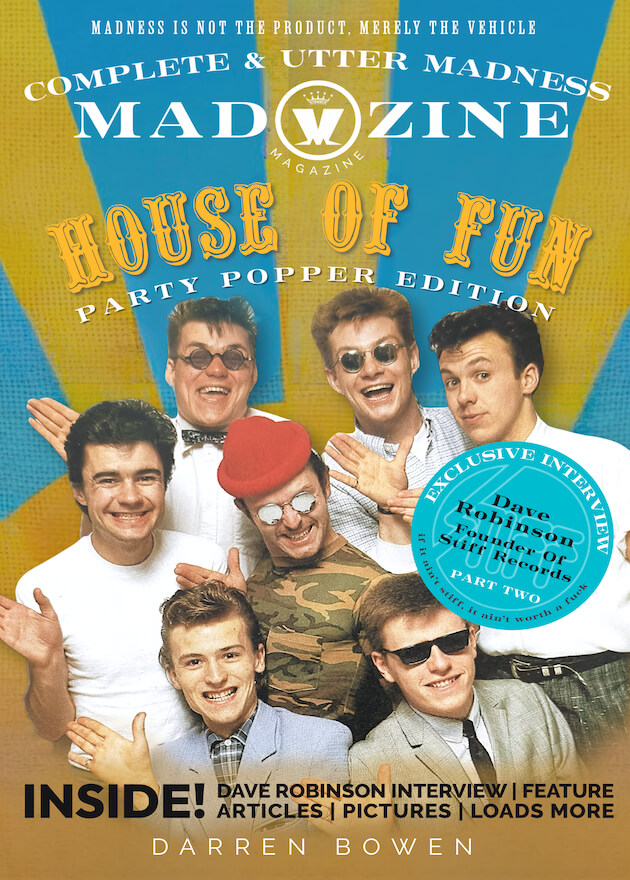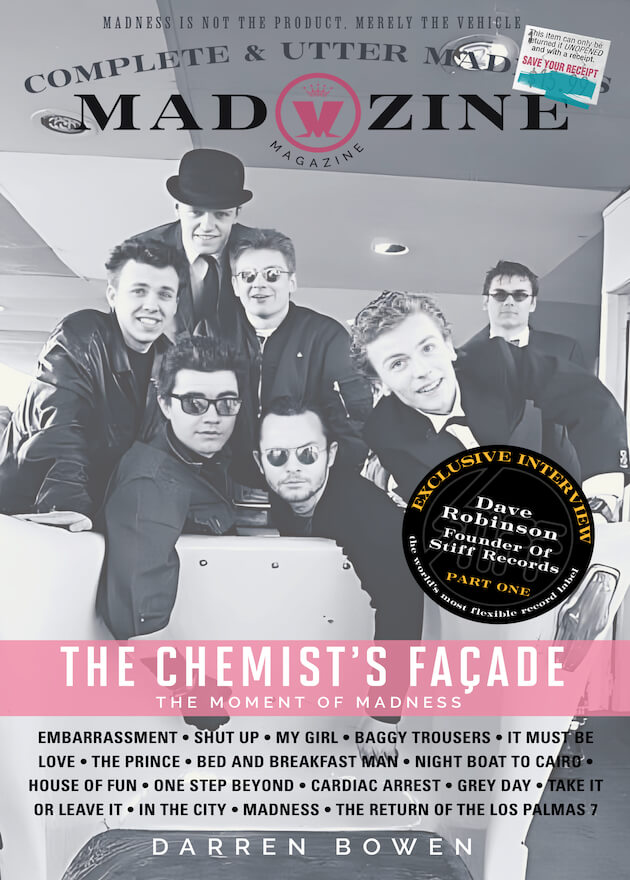Madness: Shut Up – Long, Short and Single
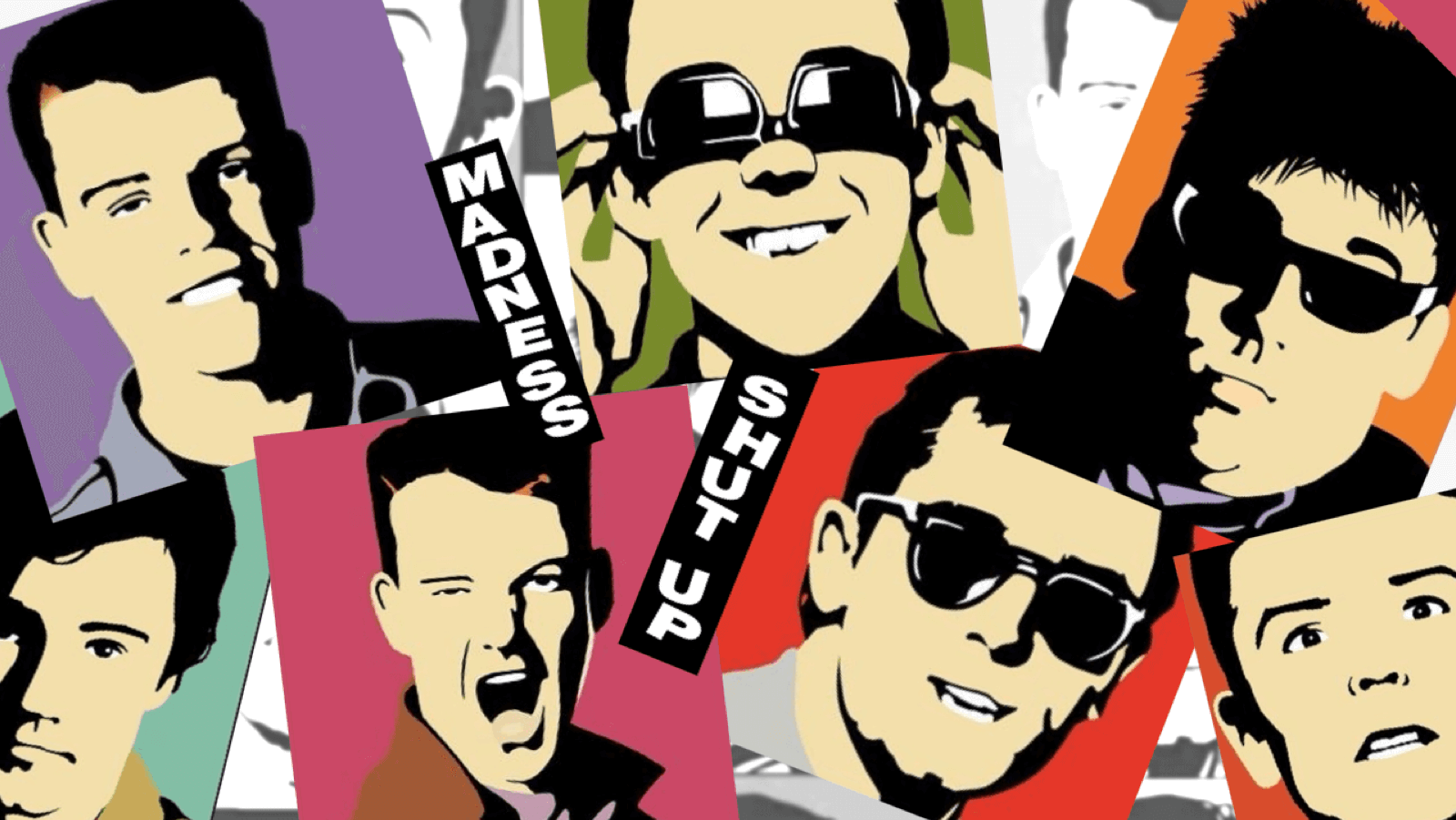
This song, “Shut Up,” has a catchy opening chord that brings to mind The Beatles’ “A Hard Day’s Night.” As the song progresses, the piano joins in and creates a fun pub-pop sound. The inspiration for the song came from the issue of petty crime. Originally, the song was 10 minutes long, but it was shortened to a more radio-friendly length. The lyrics of the song were used as the basis for the music video, where the band members dressed up as police officers, a theme that had been used by other bands like The Small Faces in the past.
In September of 1981, a unique and unexpected release from Stiff Records caught the attention of fans. The “Shut Up” 12″ version [BUYIT 126], taken from the album “7” [SEEZ 39], stood out due to its extended mix, which was not typical for a 12″ release. Surprisingly, there was no advertising or press coverage then, leaving many fans unaware of this hidden gem.
It was evident that Dave Robinson, founder of Stiff Records, had not yet grasped the notion of 12″ remixes or extended versions, which were yet to be introduced. This realization only dawned on him five or six months later when the release of Cardiac Arrest (Extended Version) [BUY-IT 140] hit the market.
The album version of the track runs for over a minute longer, clocking in at 4:06 compared to the shorter 2:56 single version. The extended edition features a fantastic piano solo by Mike Barson. Initially, it was only available as part of album 7 [SEEZ 39]. However, it later made an appearance on the UK 12″ [BUYIT 126] and Netherlands 12″ Inch Maxi Single [BUY-IT 126] without any mention of the extension. This remained the case for more than ten years.
In 1984, the renowned band decided to sever ties with Stiff Records, their record label. Virgin Records then took over their legendary Madness collection. However, as time passed, the band’s live performances no longer had the same essence of Madness they once had, ultimately leading to the end of their run by 1986.
CHRISSY BOY: Many people say, “Why Shut Up, when “Shut Up’ is not in the verse or anywhere else, well, now I can tell. When Suggs originally wrote the lyrics, it was a ten-minute opus, and it had the words “Shut Up in the chorus; these were surgically removed to give the song three-minute classic value but kept as a title for sentimental reasons. OK, OK?”
~ Complete Madness (1982)
Let’s consider how Virgin’s lack of experience and knowledge went unnoticed by casual fans and listeners. However, dedicated fans and collectors were more aware of the issues, but Virgin was unconcerned as long as they made money.
1992: Divine Madness [CDV 2692] used the album versions of “The Prince”, “One Step Beyond…”, “The Return of the Los Palmas 7”, “Cardiac Arrest”, “Shut Up”, and “Tomorrow’s Just Another Day.”
1993: The Business Boxset [MADBOX 1] and still not learning (is anyone talking?); again, an incredible screw-up and out of context for the box set; used the album version; of course, they should have used the single 2:56 minute version.
1997: Yes, Geffen Records in America started to feel the action and now, for the first time, releases the conforming US (UK) hits album ‘Total Madness’ [GEFD-25145] but uses a 3:28 minute mix from the original 1983 Geffen Madness album [GHS 4003]. This album release was left-base, and nobody noticed; America lacks the nutty sounds of Madness, and by 1997 it was becoming harder to find anyone who knew who Madness were – no, not going to sing ‘Our House’ buy the album ole chap.
2000: Fast forward to the reissue of Divine Madness [CDV 2905], Virgin did correct the use of the album versions that appeared on both the original Divine and Business boxset. However, a heavily edited version of “Shut Up” was used, shorter than any other version fading out at 2:51, more than 30 seconds short of the single version.
2003: The year that brings the fans the CD Singles Box Vol. 1 [MADBOX 3]; the creators completely screwed this up, too, neglecting that the CD for Shut Up should have had both the 12″ 4:06 minute version and the single version of 2:56 minutes, alongside” A Town With No Name” and “Never Ask Twice”.
Furthermore, I must mention that the entire box set is riddled with errors and mishaps (and I am not referring to the B-side of OSB). As we are on the subject, let me elaborate.
On Disc 1 of the Stiff album One Step Beyond, ‘The Prince’ and ‘Madness’ tracks were used instead of the original recordings from Two-tone for the single. However, this was corrected in the 2000 reissue of Divine Madness [CDV 2905]. Nobody was aware of this correction.
The fifth disc, titled ‘Don’t Quote Me On That’, features the standard version from the ‘Work Rest & Play EP’ also used on the Hot Biscuit CD. However, it should be noted that this version is not the same as the one that appeared on the original 12″ vinyl promo in terms of mix and editing.
SUGGS: This originally had a few more verses that explored the policeman’s perspective. Suggs told Daniel Rachel “[Petty crime] was a vaguely glamorous thing to be involved with as a kid. Then you thought of all the lives it affected and the coppers themselves. I thought about them chasing after petty criminals. It went on for a few more verses that never made it onto the finished record. I think they were about the policeman and his family and him running around after these burglars, and then at the end, they both meet up in the courtroom with this copper saying, ‘Shut up.'”
~ The Art of Noise: Conversations with Great Songwriters (2014)
The story depicted in the song “Shut Up” revolves around a criminal who attempts to deny his guilt despite clear evidence against him. Interestingly, though the song title is “Shut Up,” these words do not feature in the lyrics. Nonetheless, they were part of a previous version of an additional verse.
The music video promoting the band’s latest single portrays them as a group of criminals and later as police officers chasing their lead vocalist, Suggs. In the video, Suggs plays the role of a used car salesman/criminal wearing a mask, a bowler hat, and a black suit with a vertical striped shirt. The video suggests that Suggs’ character has his friends steal cars for his business, but at the beginning of the video, it is hinted that he has been apprehended by the police, with the song being his plea of innocence.
KIX: “One time we got our hands on authentic coppers’ uniforms, now, can you imagine the fun we had out on the streets in them, truncheons and everything? When we discovered the Clash were rehearsing around the corner … ‘Nobody move! It’s the police!’ Two of them run in the toilet. Just the sound of doors slamming and toilets flushing. They never spoke to us for five years. It must have been good gear, eh? The fun we had.”
~ The Guardian (2016)
During a particular scene, the band dressed in costumes come together while Chris Foreman, dressed as a police officer, plays the guitar solo on the “Super Yob” guitar. This guitar was previously owned by Dave Hill, the guitarist from Slade, and was recently acquired by Marco Perroni, a former guitarist of Adam & The Ants.
The song ‘Shut Up’ conveyed a feeling of chaos, which was also present in Foreman’s impressive instrumental B-side ‘A Town With No Name’. This piece was clearly influenced by the Western movie soundtracks composed by Ennio Morricone. The 12-inch version of the album 7 [SEEZ 39] included the intriguing track ‘Never Ask Twice’, which replaced ‘Day On The Town’ on specific international editions.
CHRISSY BOY: “‘Shut Up’ was a kitchen sink production. For my guitar, I had Slade in mind; the Duane Eddy bit in the middle was from another song.” Foreman wrote the song with lead singer Suggs.
~ Uncut magazine (2008)
Taken from Madzine (Issue Six)
Madness: Shut Up – Long, Short and Single

Author: Madzine Magazine
Featured Madzine Articles
RIP: Jeff Baynes: Visionary Filmmaker And Photographer Of The Madness Universe
It is with great sadness that we mark the passing of another creative spirit from the world of Madness. Jeff Baynes, a visionary photographer and filmmaker, was an integral part of capturing the energy, humor, and unique character of the band, leaving behind a visual legacy that will endure for years to come.
The Donut That Spies On Fans
Recently, two new 12” vinyl bootlegs, titled “Rare Madness Vol. I” and “Rare Madness Vol. II,” have surfaced on the marketplace. These unofficial releases feature a mix of rare tracks, album cuts, B-sides, and singles from the 1979-1982 period. The bootlegs are being distributed by Nutty Business Italy and are currently available for purchase through Juno Records.
RIP: Andrew “Chalky” Chalk: A Friendship Cherished
Andrew “Chalky” Chalk, lifelong best friend and confidant of Suggs from Madness, was a pivotal figure in Suggs’ life, from childhood mischief to being his best man at his wedding. Known for his wit and loyalty, Chalky passed away on December 21, 2024, at 64, after a battle with terminal cancer. His enduring friendship with Suggs remains a testament to love and camaraderie.

